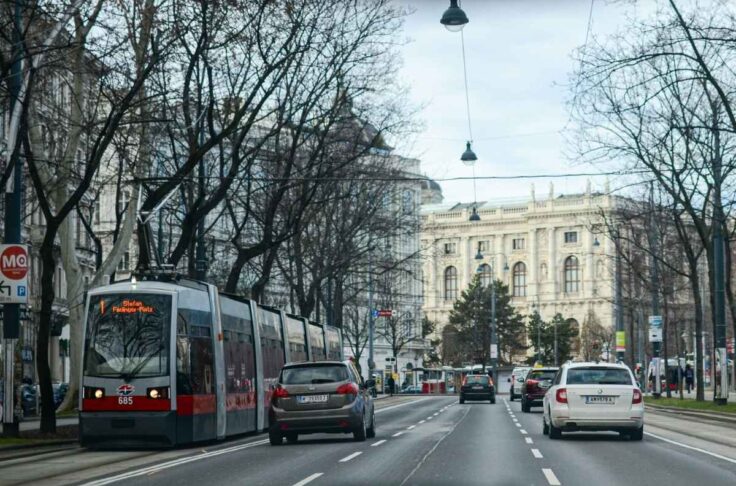Free-Floating Carsharing in Belgium: An Insights Interview
Summary
The Belgian carsharing market is currently one of the fastest growing European markets. In 2022, the fleet size and customer base saw record highs. We asked Jeffrey Matthijs, Director at Autodelen.net, about the history, main KPIs, success factors, and trends of free-floating carsharing in Belgium.

Carsharing is booming. Many operators are reporting expanding fleet sizes and new record-high customer registrations. At the same time, the business models of operators are evolving and seeing new innovations. That is why INVERS will launch the Mobility Barometer on European Free-Floating Carsharing on 04.05.23; a free-of-charge, 55-page report that helps carsharing operators quickly understand key market dynamics, insights, and trends.
Our Barometer highlights recent findings from the Belgian non-profit organization and carsharing network Autodelen.net. Their experts gather, analyze and understand the key developments of the market. Their annual report “Impact Report. Carsharing in Belgium in 2022” was recently published. We believe, it is one of the key resources for understanding the European free-floating carsharing markets. Therefore, we are happy to sat down with their Director, Jeffrey Matthijs, for this interview.
Who is Autodelen.net and what is your aim?
Autodelen.net is a non-profit organization based in Belgium that promotes carsharing as a sustainable and cost-effective alternative to car ownership. The organization was founded in 2003 and has since become a leading advocate for carsharing in Belgium, working with local governments, carsharing providers and communities to promote the benefits of carsharing. Our aim is to lower car ownership, lower car trips and get people to use more sustainable modes such as public transport, biking and walking.
Recently, free-floating carsharing in Belgium has seen strong growth. Can you guide us through the recent development?
The first free-floating carsharing providers popped up in Brussels in 2016 but after three years both international companies DriveNow as well as Zipcar ended their services in 2019 due to a lack of a profitable business model. However, in 2018 a Belgian free-floating provider (Poppy) started in the city of Antwerp (Flanders) and they became very successful from the beginning. Soon they added several other locations such as the city Ghent and Brussels. Inspired by the success of Poppy, Green mobility and Miles introduced their fleet in Flanders and Brussels in respectively 2020 and 2022.
Do you see specific success factors for free-floating carsharing in Belgium?
First of all, the path for carsharing has been paved by successful roundtrip schemes such as Cambio, Dégage and Cozywheels. They did a very good job in the beginning years of carsharing in Belgium. So free-floating carsharing benefited from the work of these pioneers. The success of Poppy is due to a local approach with good connections with local policy and a very good marketing strategy which aimed on new target groups. Also, the success of free-floating carsharing can be attributed to its convenience, flexibility, and the technology that enables it.
What are the reasons for the different levels of availability of free-floating carsharing in the different regions in Belgium?
Free-floating carsharing is generally more popular in densely populated urban areas. As a result, cities like Brussels and Antwerp have a higher availability of free-floating carsharing compared to more rural areas. In the French speaking part of Belgium (Wallonia) there are less densely populated cities. In fact, this not only a matter for free-floating carsharing. We see also a big difference in the offer of roundtrip carsharing between Wallonia and the rest of Belgium.
What impact does carsharing have on the modal shift? In other words, do you have data on how carsharing impacts car ownership?
This year Autodelen.net did a big research on the impact of carsharing in general related to the ownership of private cars and the modal shift. We learned that a shared car in Flanders replaces on average 3 to 10 private cars. We see differences between roundtrip and free-floating carsharing. Roundtrip tends to replace more cars then free-floating. However, the sample for free-floating carsharing was not representative. We only had a 3% response rate. So, we only can talk about an indication for this type of carsharing. For now, we can say that a free-floating car might replace around 3 private cars. In the future more research is needed to give more conclusive results.
Can you guide us through some of the main usage KPIs of Belgian free-floating carsharing?
The number of free-floating shared cars increased by almost 60% in 2022, reaching a new peak of 1,435 shared cars. This is explained by the arrival of German player Miles and the expansion of Poppy’s fleet. Also, in two years time the number of free-floating car sharers virtually doubled and last year we saw a growth of 78%. A user tends to use a free-floating car 10 times a year.
A free-floating vehicle is in use for an average of 114 minutes by an average of 1 to 2 users per day. The average distance driven by free-floating shared cars is 20 km and a has a duration of 1h41min. This is one hour more than the year before. This is due to the fact that free-floating carsharing providers allow ‘one way’ trips between different cities in Belgium and operators have put more effort into offering economical day packages, formulas where a fixed cost is paid for a full day’s use of the shared car. This makes longer journeys more affordable than with regular pricing.
Can you share some experience of Belgian free-floating carsharing fleets with damages and vandalism?
There have been reports of damages and vandalism to free-floating carsharing fleets in Belgium, as is the case with many other cities around the world. Some common types of damages and vandalism that have been reported include physical damage to the cars, theft (such as GPS devices and radios) and some users of free-floating carsharing services have been reported to misuse the cars, such as driving them off-road, driving at high speeds, or driving while under the influence of alcohol or other drugs.
To mitigate these risks, many free-floating carsharing providers in Belgium have implemented various security measures, such as GPS tracking and stricter user verification processes. Since they do this there are less reports of misuse.
Which trends do you foresee for the market in Belgium?
Free-floating carsharing in Belgium has primarily been focused on large urban areas. I expect to see more companies expand their services to smaller cities and rural areas in Belgium, as demand for carsharing grows and new technologies make it easier to manage and operate carsharing fleets. We see f.i. that the fleet of Poppy already can be used in the city of Lier which counts only 37,000 inhabitants. Another trend I expect to see is the growth of the integration with other transportation modes (Mobility-as-a-Service) such as public transportation and bike sharing. Also, as electric (and autonomous vehicle) technologies continue to develop, I expect to see more free-floating carsharing providers adopt these technologies in their fleets. Lastly, as already mentioned above in the description of the KPI’s, I expect to see more companies offer subscription-based models that provide users with access to a certain number of hours or days of carsharing per month for a fixed fee.
Further insights into free-floating carsharing
Thank you, Jeffrey, for the great chat, showing us your data clinic and this insightful interview.
For more information and interesting findings about free-floating carsharing, we encourage readers to check out our INVERS Mobility Barometer on European Free-Floating Carsharing launching on 04.05.23 or the above mentioned Autodelen.net study “Impact Report. Carsharing in Belgium in 2022”.


